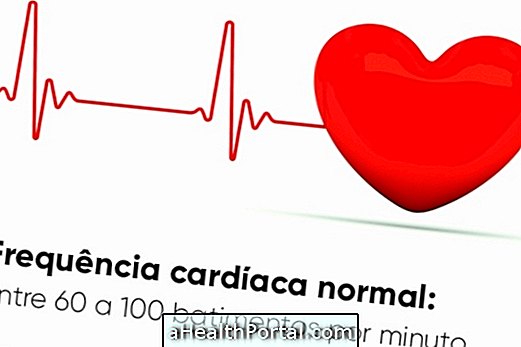The first symptoms of cigarette smoking usually occur within a few hours of smoking cessation, and mood, anger, anxiety, and apathy usually occur. In addition, headache, tiredness, a feeling of sadness, difficulty concentrating and increased appetite can also occur.
However, the time it takes for these symptoms to vary varies from person to person, and can take up to 48 hours after smoking the last cigarette, and can also be felt by smokers in Narguilé, as this hookah can be as or more addictive than the cigarette itself. See the health risks of smoking hookah.

Symptoms of withdrawal
Symptoms of withdrawal appear about 12 hours after cigarette smoking due to lack of nicotine in the body, and are characterized by irritation, tremor, anxiety, coughing and throat clearing. Find out what the symptoms of cigarette smoking are and how to deal with each:
1. Irritability
It is normal to be more annoyed and upset in situations that once seemed banal. It is therefore advisable to find an escape valve and some time to relax and feel better.
2. Tremor and increased sweating
To get around this situation it is best to wear light clothes, invest in a good deodorant and drinking coffee can be useful to reduce the tremor.
3. Increased appetite
Anxiety can increase appetite and so you should bet on high fiber foods like oats and wheat bran that can easily be added to yogurt and meal, for example.
Here's how to not get fat after leaving the cigarette in the following video:

4. Chest tightness and cough
Chest tightening can be emotional and coughing is common but can be bypassed by drinking more water. The more clear liquids like water and tea, the better it will be to detoxify.
5. Nasal secretion
The feeling of runny nose should pass in a few days but keeping the nostrils clean by using saline to clean can be helpful and helps to avoid this discomfort.
6. Insomnia
You can take a tea of chamomile or passiflora after 8 o'clock at night can help improve the quality of sleep but if it is not enough sleeping pills can be an option as long as your doctor advised. Melatonin is an option to get to sleep faster.
7. Constipation
To improve intestinal function bet on laxative fruits like papaya and plum, eating daily. and drink plenty of water to moisten the fecal cake, making it easy to get out.
The abstinence crisis lasts an average of 1 month, varying according to each person and the amount of cigarettes he smoked, and is the worst phase of the quit smoking process. However, after 2 or 3 months it is possible to get along better without the cigarette and without the abstinence crises.
Health Benefits
Although smoking cessation is difficult to overcome, one should always remember the benefits that smoking cessation brings to health, such as reducing the risk of stroke, heart attack, lung cancer or other cancers, high blood pressure, cataracts and respiratory diseases.
Another benefit of smoking cessation is increased fertility in both men and women, as well as the regulation of the menstrual cycle, which can be affected by the toxic substances of smoking.
Some of these benefits can be felt after a few days without smoking, but only after about 5 years is that the body returns to being healthy and being free of the toxins and malfunctions of the cigarette.
Tips and remedies
Some tips that help quit smoking are regular physical activity, as it releases hormones that give the body a sense of pleasure and well-being, chewing gum or sucking a bullet whenever you want to smoke and eating more fruits and vegetables to improve functioning of the intestine.
In addition, some medicines can be used to aid in the process, such as Champix and Zyban, as they help control withdrawal symptoms and decrease the urge to smoke. See all medications here.

























